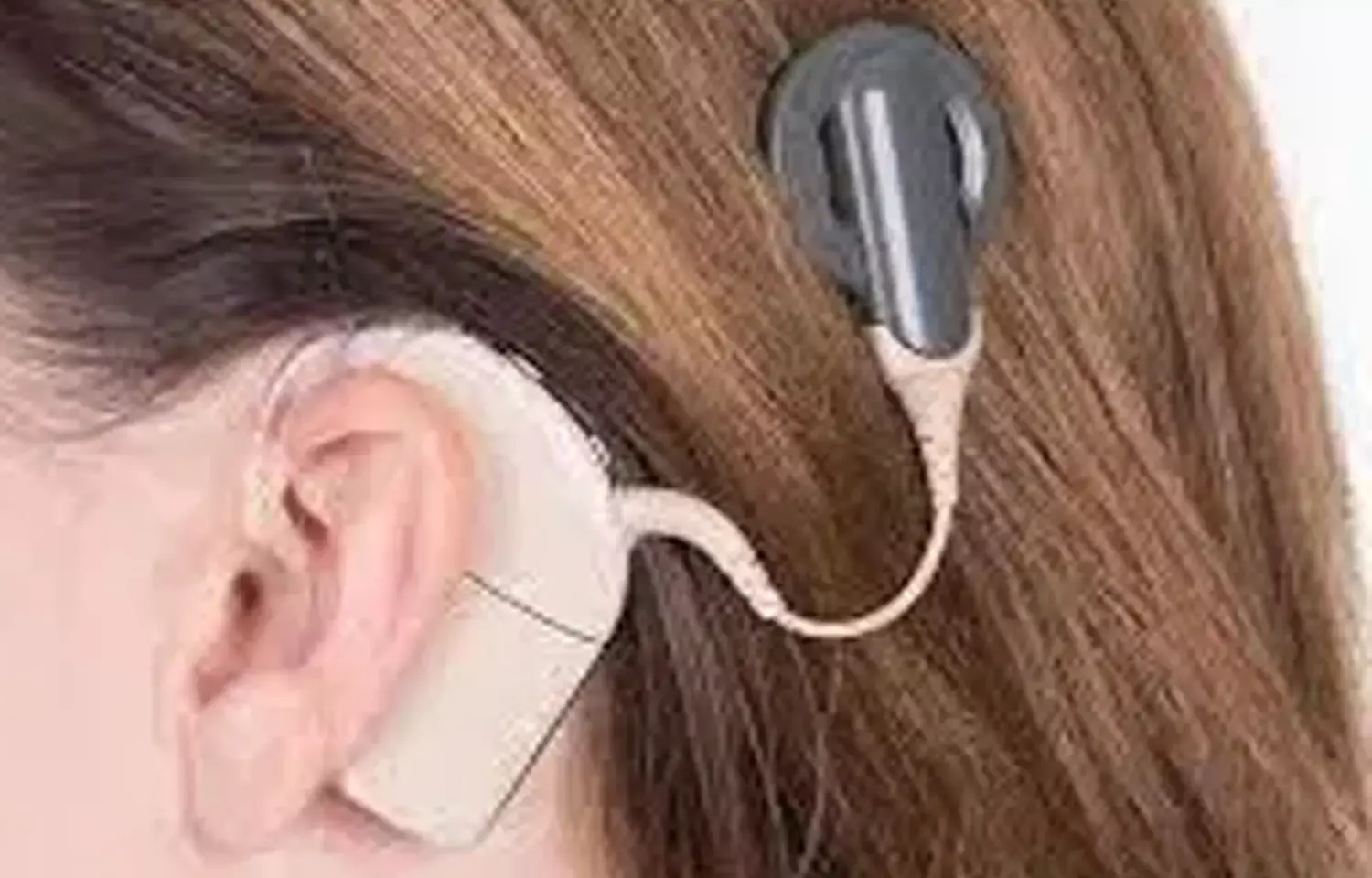- Home
- Medical news & Guidelines
- Anesthesiology
- Cardiology and CTVS
- Critical Care
- Dentistry
- Dermatology
- Diabetes and Endocrinology
- ENT
- Gastroenterology
- Medicine
- Nephrology
- Neurology
- Obstretics-Gynaecology
- Oncology
- Ophthalmology
- Orthopaedics
- Pediatrics-Neonatology
- Psychiatry
- Pulmonology
- Radiology
- Surgery
- Urology
- Laboratory Medicine
- Diet
- Nursing
- Paramedical
- Physiotherapy
- Health news
- Fact Check
- Bone Health Fact Check
- Brain Health Fact Check
- Cancer Related Fact Check
- Child Care Fact Check
- Dental and oral health fact check
- Diabetes and metabolic health fact check
- Diet and Nutrition Fact Check
- Eye and ENT Care Fact Check
- Fitness fact check
- Gut health fact check
- Heart health fact check
- Kidney health fact check
- Medical education fact check
- Men's health fact check
- Respiratory fact check
- Skin and hair care fact check
- Vaccine and Immunization fact check
- Women's health fact check
- AYUSH
- State News
- Andaman and Nicobar Islands
- Andhra Pradesh
- Arunachal Pradesh
- Assam
- Bihar
- Chandigarh
- Chattisgarh
- Dadra and Nagar Haveli
- Daman and Diu
- Delhi
- Goa
- Gujarat
- Haryana
- Himachal Pradesh
- Jammu & Kashmir
- Jharkhand
- Karnataka
- Kerala
- Ladakh
- Lakshadweep
- Madhya Pradesh
- Maharashtra
- Manipur
- Meghalaya
- Mizoram
- Nagaland
- Odisha
- Puducherry
- Punjab
- Rajasthan
- Sikkim
- Tamil Nadu
- Telangana
- Tripura
- Uttar Pradesh
- Uttrakhand
- West Bengal
- Medical Education
- Industry
Instrumented Gait Analysis reveals Deficits in Gait Stability in Chronic Vestibular Loss: JAMA

Regaining the ability to walk safely is a high priority for adults with vestibular loss. However, adults with chronic vestibular loss usually have clinically and functionally meaningful gait deficits. This has been observed by a group of researchers from the Department of Surgery, University of Wisconsin–Madison.
The study has been published in the JAMA Otolaryngology- Head & Neck Surgery.
To assess vestibulopathic gait, practitioners need comprehensive knowledge to design, provide, and/or interpret outcomes of interventions. To date, literature suggests few studies that have characterized the effects of vestibular loss on gait.
Therefore, Colin R. Grove and associates recently conducted a cross-sectional study to investigate the use of an instrumented 2-minute walk test in adults with vestibular loss, to further characterize vestibulopathic gait, and to assess whether those with chronic vestibular loss have enduring gait deficits.
This cross-sectional study recruited adults 20 to 79 years of age from an academic, tertiary, hospital-based, ambulatory care setting who were healthy or had confirmed unilateral or bilateral vestibular hypofunction. Of the 43 adults who were screened from convenience and referred samples, 2 declined, and 7 were excluded because of health conditions.
The main exposure was the instrumented 2-minute walk test, which was conducted with participants using wearable inertial measurement units while they walked a 10-m path at their self-selected speed and turned 180° in their self-selected direction at either end.
The following outcomes were observed-
- Data from 17 healthy adults and 13 adults with vestibular loss were analyzed.
- Very large between-group differences were found for SL (left) and peak turn velocity (estimated marginal mean [SE] for healthy vs vestibular groups, 240.17 [12.78]°/s vs 189.74 [14.70]°/s; Cohen d, 1.23; 95% CI, 0.07-2.40).
- The area under the curve was 0.79 for peak turn velocity.
Hence, this led the authors to conclude that "in this cross-sectional study, instrumented gait analysis had good discriminative validity and revealed persistent deficits in gait stability in those with chronic vestibular loss."
The findings of this study suggest that these clinically and functionally meaningful deficits could be targets for vestibular rehabilitation.
Dr. Nandita Mohan is a practicing pediatric dentist with more than 5 years of clinical work experience. Along with this, she is equally interested in keeping herself up to date about the latest developments in the field of medicine and dentistry which is the driving force for her to be in association with Medical Dialogues. She also has her name attached with many publications; both national and international. She has pursued her BDS from Rajiv Gandhi University of Health Sciences, Bangalore and later went to enter her dream specialty (MDS) in the Department of Pedodontics and Preventive Dentistry from Pt. B.D. Sharma University of Health Sciences. Through all the years of experience, her core interest in learning something new has never stopped. She can be contacted at editorial@medicaldialogues.in. Contact no. 011-43720751
Dr Kamal Kant Kohli-MBBS, DTCD- a chest specialist with more than 30 years of practice and a flair for writing clinical articles, Dr Kamal Kant Kohli joined Medical Dialogues as a Chief Editor of Medical News. Besides writing articles, as an editor, he proofreads and verifies all the medical content published on Medical Dialogues including those coming from journals, studies,medical conferences,guidelines etc. Email: drkohli@medicaldialogues.in. Contact no. 011-43720751


